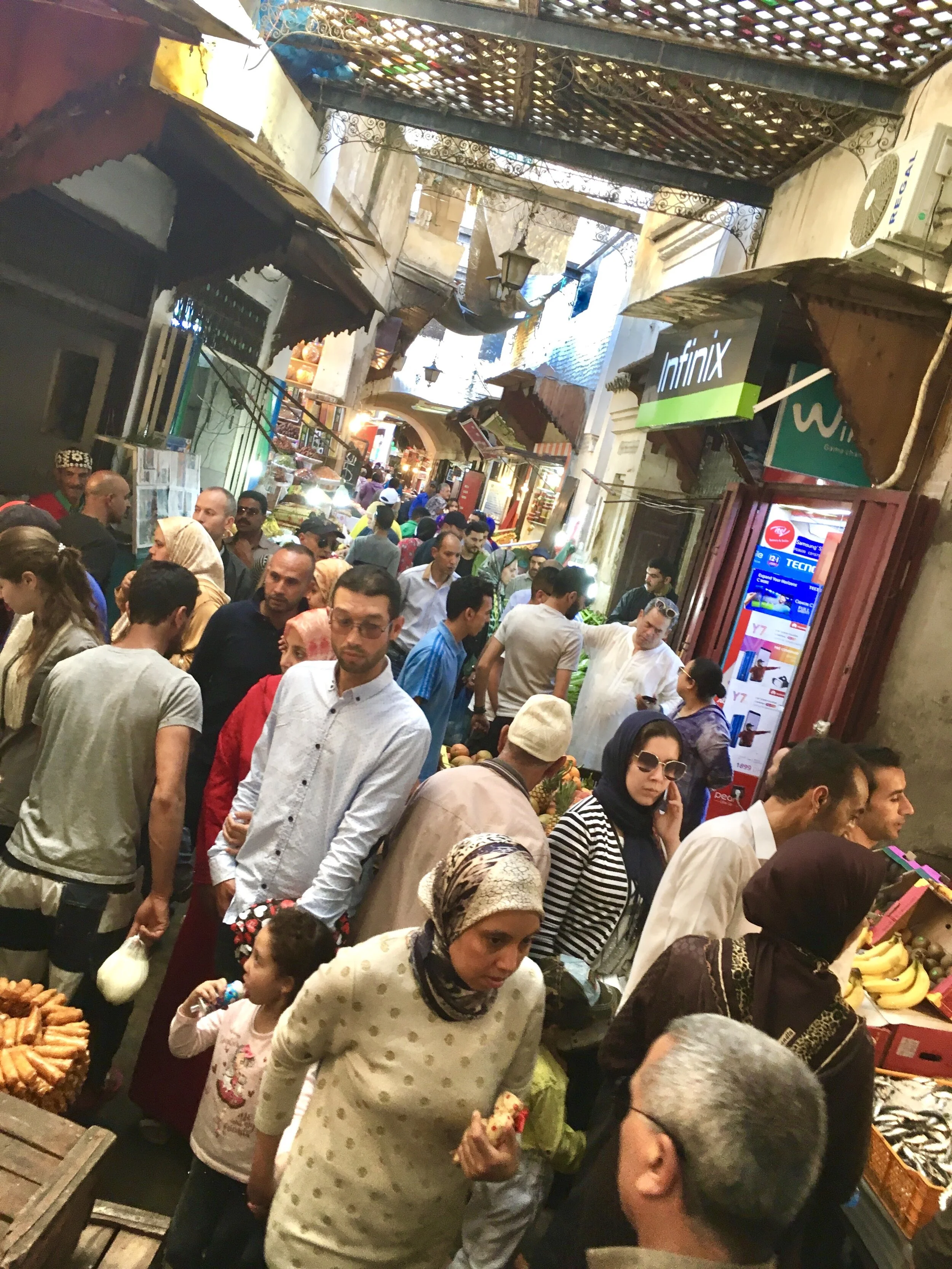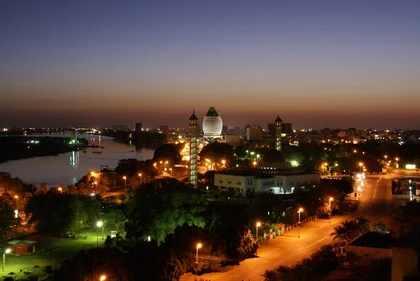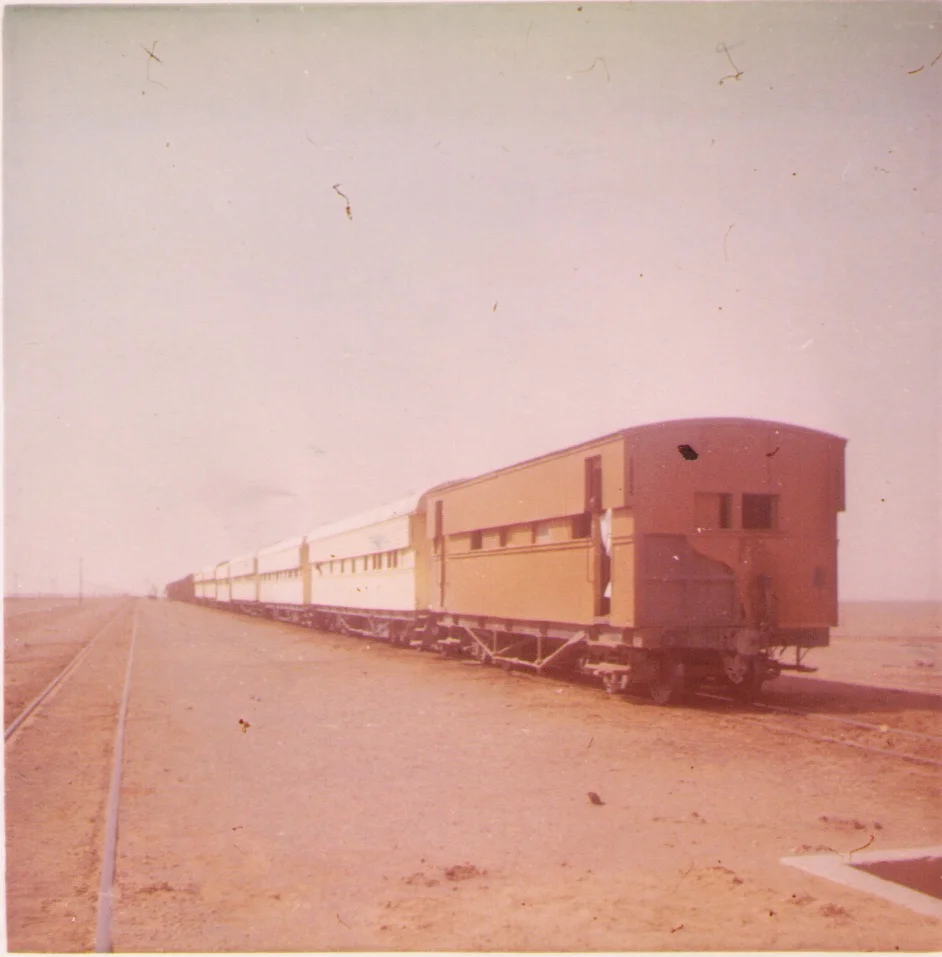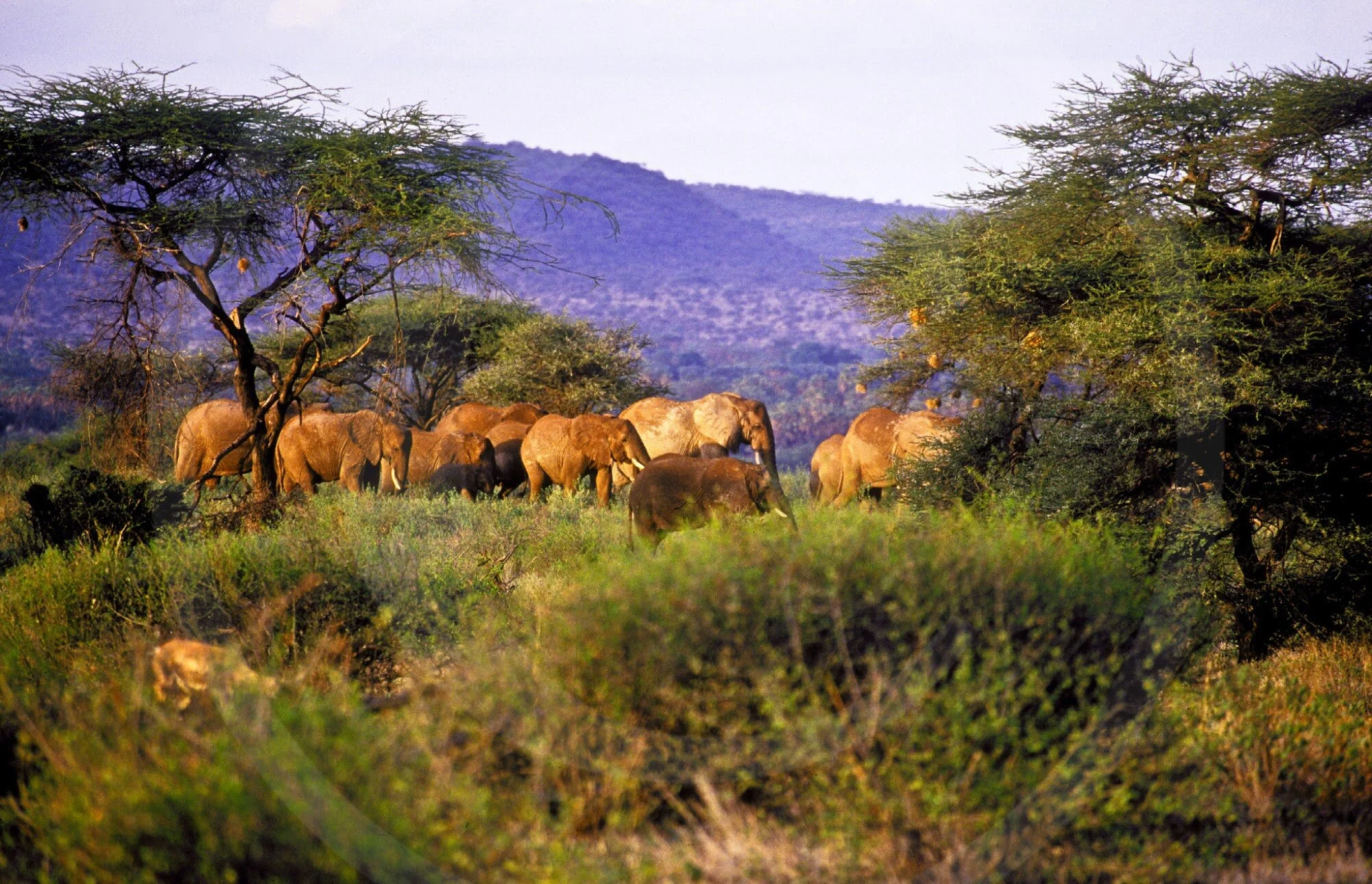Launching a small-scale drone program to aid the fight against wildlife poaching in northern Tanzania presents challenges beyond the technology for Mike Chambers and a team at Mkomazi National Park.
All tagged Africa
Leaving Fez, Biting Our Nails
Making plans in Fez for a last-minute Sahara excursion during Ramadan proved to be a bit of a gamble for retired American Michael Papas. As he handed over a stack of cash, he wondered if he was being foolish or if trusting a stranger in a foreign land would pay off.
Tresspassers in Tanzania
Unexpected visitors transform a quiet afternoon in rural Tanzania into a trip to the emergency room for Canadian expat, Mike Chambers.
An unexpected encounter with smugglers in Madagascar
Alarm bells went off in Jacqueline Hitt’s mind when the small plane she was traveling on made an unscheduled landing on a makeshift runway in a remote part of Madagascar.
Caught in Khartoum
Jailed in a Sudanese prison wasn’t what Mike Chambers imagined when he went to Africa. Then luck and the actions of one officer changed everything.
An “Ugly American” Moment In Sudan
Pamela Blair, in the Sudan on the final leg of a long train voyage over a hot and empty desert, had prepared herself to be bored. It was what she hadn't planned on, however, that would forever change the way she saw the world and herself in it.
story and photos by Christopher Clark
As the bus eased through the gears, through the green corn fields and farther away from the small terminal in the town of Kitale, I tried to cast my mind back to the beginning, to figure out what it was that had drawn me to the wild and volatile Turkana region of Kenya in the first place. I guessed that the people I would meet once I got there might want to know. But the truth was that I still didn't really have an answer.
I could at least have said that it stemmed from books by long-dead explorers; and that I was looking for something very different; and that Turkana seemed a long way away from pretty much everything I had previously known. At 28 years old I had grown bored of and disillusioned with much of what I had previously experienced. Wasn't that enough reason?
Either way, it was too late. I was on my way, heading north, already half way there. Soon the bus rose out of the the Rift Valley and gradually left the rich, thick vegetation behind as we entered a place of sparse open space and scorched earth.

The rumours about the poor quality of the dirt road to Turkana were by no means exaggerated. At times the bus seemed to defy physics, leaning precariously to the side, the ground suddenly almost within touching distance of the window. Many of whom I assumed were the more seasoned passengers whooped, laughed and slapped thighs as though it was all part of the fun. I held on to my armrests for dear life.
A few hours into our journey the bus passed a group of five or six men slouched on the sand with T-shirts covering most of their faces like balaclavas and AK-47s slung over their shoulders. As I stared out of the window at them, one of them saw me, stood up, lifted his gun aloft with one hand and waved at me vigorously with the other, and then they were gone.
We arrived at our destination, Lodwar, at a little before 11 p.m., roughly five hours late. Patience is a must for travelling in Kenya.
A Hitchhiker's Guide to Namibia
The bakkie went over a large pothole and I was jolted awake, the shock making me inhale deeply and sharply. The air was hot. My throat and eyes stung from all the dust. The unbending road ran like a dagger through the heart of the desert. There was nothing else. Just us, the road, the desert, the sky and the burning sun, and the great weight of my hangover forcing itself in on my shriveled, raisin-like brain and lungs. I wondered for a second if we were heading towards the end of the world.

It had all been a terrible accident really. I knew almost nothing about Namibia except that there were a lot of sand dunes, and without a few too many drinks to lubricate the imagination and fire the yearning for adventure, it probably never would have happened. The truth is though, I could probably say the same about a lot of my trips over the years, especially the most interesting ones.
It had all started in what might loosely be called the ‘town’ of Springbok, a little way back across the border. I was there on a job and had confessed my ignorance of Namibia to a local Afrikaans prospector’s son named Rico, who I had got talking to at the local bar. His head was similar in size and shininess to a watermelon, yet still looked disproportionately small for his enormous frame.
Now there I was in the back of his battered old vehicle hurtling northward away from the South African border like a bat out of hell, still not entirely sure where I was headed or why. And good old Watermelon Head was at the helm up in front of me, his equally large wife bumping along in the seat next to him and occasionally barking what I could only imagine were strong Afrikaans expletives at her husband. But still he went bravely on, potholes and abuse or no, taking me ever deeper into the burning heart of the unknown.
by Fyllis Hockman
"It can be a difficult journey. If you have a cold, cough or sniffle, don’t even bother lining up. Good hiking boots and a walking stick are a must. Bring plenty of water. Be sure to stay at least 25 feet away. Remember these are wild animals. If we need to carry you out, that will cost an extra $300."
I was already intimidated by the pre-trek briefing and we hadn’t even started on our mountain gorilla expedition, which was part of a 16-day tour to southwestern Uganda sponsored by ElderTreks. The 25-foot rule, I learned, was for both their protection and ours. Sharing 98.4 percent of our DNA, the gorillas are very susceptible to human-borne illnesses. We were carriers and they had to be protected from us. They were wild animals and we had to be protected from them. A fair quid pro quo. Thus, eight humans a day are allowed to visit a gorilla group for no longer than an hour. Works for us; works for them.
 Gorilla trekkers ascending one of many steep climbs.
Gorilla trekkers ascending one of many steep climbs.
This is not exactly a drive-by photo op. With a vigorous trek of 1-7 hours, depending upon where the gorillas are that day, you have to REALLY want to see them. But even with visitation restricted to an hour, it is usually well worth the effort.
by Laura Fuller
Ron’s blue eyes were bloodshot and watering when he returned to the group. His cheeks were sunburned, his hair sun-bleached. He shoved his hands in the pockets of his white hooded sweatshirt, an act of 13-year-old toughness. He and Mary had volunteered to eat the goat’s kidneys, not because they’d wanted to, but because peers’ opinions outweigh adolescent reason. Mary now smiled proudly in a pack of incredulous girls. Ron fought to put the texture of warm, raw goat kidney behind him and move on with his life, but I could see that he was struggling to gain control of his gag reflex. Kyle offered to walk with him back to the tents, stoically, so as not to make Ron feel weak.
I watched them walk away, their shadows long in the evening grass, and turned back to the other 20-some seventh-graders, all of them perplexed as to how to receive this cross-cultural gift. They were outlined against a horizon of royal blue Tanzanian sky, high above tufts of trees and shrubs on the rocky terrain below. The high rocks on which we stood began to glow reddish in the setting sun. This, I predicted, was both the height and the conclusion of my short, ridiculous teaching career in Dubai.
The kids had all chosen to observe the ritual slaughter of this goat, not wanting to be cowardly among the courageous or rude to the Maasai guides. After sixteen hours of Serengeti driving from the nearest city, we were lucky to have the Maasai patrolling our campsite’s perimeter every fifteen minutes at night to ensure our safety. They silently taught our students to carve spears and showed us the soft cave in the bush where they held their councils.
The seventh-graders, from Dubai – who actually came from all over the planet – were upper-class, elite, and as such, polite and appreciative. They were first inquisitive: goat slaughter? And then horrified: goat slaughter.
Fat and Happy
 “Promise you will stay one more year. We are so happy with how you relate to us. And you are happy, yes? You are getting fat.” Looking at Mama Ami, I know she is quite serious. How would she know that where I come from, being called fat isn’t exactly a compliment? My mind jumps full speed into a rapid analysis of how much I may have changed in the months since my arrival in Nigeria – a diet primarily of okra or bitter green soups with starchy porridges; the occasional dish with beans and crayfish but general deficiency of good protein; the dearth of fresh produce in our market, the lack of refrigeration and my waning interest in learning the labor intensive traditional methods of preparing their dishes – anything was possible. Snapping out of it, I let myself simply feel pleased that they are comfortable with my presence.
“Promise you will stay one more year. We are so happy with how you relate to us. And you are happy, yes? You are getting fat.” Looking at Mama Ami, I know she is quite serious. How would she know that where I come from, being called fat isn’t exactly a compliment? My mind jumps full speed into a rapid analysis of how much I may have changed in the months since my arrival in Nigeria – a diet primarily of okra or bitter green soups with starchy porridges; the occasional dish with beans and crayfish but general deficiency of good protein; the dearth of fresh produce in our market, the lack of refrigeration and my waning interest in learning the labor intensive traditional methods of preparing their dishes – anything was possible. Snapping out of it, I let myself simply feel pleased that they are comfortable with my presence.
Truthfully, I wasn’t sure how comfortable I would be here – a country of over 200 different ethnic groups, a mixture of Muslims and Christians, an international image well ensconced in corruption and scams. But here I was, living in a small town, working for a local organization whose office was housed on the family compound. The business’ fish tanks and hatchery edged one side of a large dirt yard otherwise surrounded by the homes of the cousins, their families, and the elder mamas. Sitting on the porch with Mama Ami and her husband Joshua, I know she is right - I am happy. The contentment has been unfolding so slowly I barely noticed it; made up of hundreds of tiny milestones of recognition and inclusion.
Seven Years Younger: Life On Ethiopia Time
words + photos by Maureen Magee
Time zones, the International Date Line and jet lag all contribute to my feeling disoriented when traveling. Date lines especially – leaving home on a Tuesday and arriving on the Monday before I left definitely throws me for a loop.
 But what about when the traveler leaves home in 2011 and arrives in 2004?
But what about when the traveler leaves home in 2011 and arrives in 2004?
It happens all the time – when traveling to Ethiopia. Once you disembark in Addis Ababa, you will be at least 7 years younger.
My first trip to this time-estranged nation was in September, 1999. The airport was festively decked out with banners proclaiming some kind of celebration, followed by “1993!” I couldn’t speak or read Amharic, so the actual celebration was a mystery – but I figured it must have been a heck of an important party, if Ethiopians left the banners up for 7 years.
My guide greeted me with a standard “Hello”, followed by a joyous “Happy New Year!” After 24 hours in transit, I was too tired to question this and thought, who knows – maybe in Ethiopia, everyone is welcomed with a New Years greeting – even if it is 9 months later. One never knows in other cultures…
words by Judith Fein; photography by Paul Ross
 I am in love...with Tunisia. When I close my eyes and think about the kindness, hospitality and open-heartedness of the Tunisian people, I want to jump on a plane and go back. I've been to Tunisia seven times, lived there for six months, made two films about the country. But I hardly expected what has happened over the last week: there has been a grass-roots revolution. The Tunisian people have risen up against their tyrannical leader, and said no to repression. They have risked their lives in their fight for freedom.
I am in love...with Tunisia. When I close my eyes and think about the kindness, hospitality and open-heartedness of the Tunisian people, I want to jump on a plane and go back. I've been to Tunisia seven times, lived there for six months, made two films about the country. But I hardly expected what has happened over the last week: there has been a grass-roots revolution. The Tunisian people have risen up against their tyrannical leader, and said no to repression. They have risked their lives in their fight for freedom.
In my lifetime, the Solidarity movement in Poland catapulted to power. The Berlin wall fell. The Soviet Union fell apart. And now, in a small Arab Muslim nation in North Africa, a despot has been deposed and the people are demanding democracy.
READ why I think the revolution and the country should be on your radar in my RECENT ARTICLE FOR THE HUFFINGTON POST
And maybe, this year, if the stars are aligned correctly, you'll JOIN ME FOR A TRIP to the new Tunisia. If you're game, drop me an email.
words + photos by Dr. Marissa Pei
I went to Africa expecting to have my paradigms blown out of the continent. And bombs away, my mind detonated, but in a way that was entirely unexpected.
 Dr. Marissa Pei and friend in AfricaI went to Africa thinking that I would learn to be more grateful. And I am grateful, especially for the conveniences of western civilization that I have grown accustomed to. I missed having toilets that flushed, toilet paper supplied, toilet paper that would flush, stalls where I could sit and not have to stand, and bathrooms where I didn’t have to breathe through my mouth.
Dr. Marissa Pei and friend in AfricaI went to Africa thinking that I would learn to be more grateful. And I am grateful, especially for the conveniences of western civilization that I have grown accustomed to. I missed having toilets that flushed, toilet paper supplied, toilet paper that would flush, stalls where I could sit and not have to stand, and bathrooms where I didn’t have to breathe through my mouth.
Yes I am grateful for sanitization that uses up exorbitant amounts of natural resources. Would I give it up? Not in this lifetime! Will I be more grateful for American bathrooms? Absolutely! But by being appreciative for our sanitation and building codes, am I implying that we in the west are more civilized? Well if “civilized’ means beautifully-constructed and aesthetically-pleasing on the outside, yes we in the West are definitely more beautiful on the outside. But are we more beautiful on the inside?
I went to Africa thinking that I would be triggered by the haunted look in the children’s eyes, you know...like the World Vision pictures or National Geographic images…and to some extent I was. But 88 percent of the time, our eyes would meet, I would smile, and a spontaneous answering grin would break their face wide open, tapping into the reservoir of love and joy in their heart which splatters all over me.
Kenya: Rules of the Wild
words + photos by Ellen Barone
It was a few days into my first African safari when I learned the Fourth Rule of Safari Travel: When you think you’ve spotted a lion, casually ask the guide “What’s that?” rather than blurt out “There's a lion!” because 9 times out of 10 the ‘lion’ will be a termite mound.
Later on, I’d learn other rules: No. 7, If you’re squeamish about eating flesh avoid restaurants with the word Carnivore in their title; No. 13, Never run out of the safari tent, half naked, screaming “there’s a creature in my bed” before you’ve determined it isn’t a hot water bottle put there by the room steward to take the chill off a high-altitude night; and No. 17, Avoid standing up suddenly in an open-top Land Rover with a metal roll-bar above your head.
 Photo by bdinphoenix via Flickr (Creative Commons)I stepped out of the flat, gray day and into the black depths of the tunnel that led to the Female Dungeon beneath the Cape Coast Castle. Sensing my way along the stone floor, I followed the footsteps of other visitors ahead as my eyes gradually adjusted to the darkness. Cool air in the tunnel provided no lasting respite from the thick humidity outside; any sense of relief was overshadowed by the heavy weight of souls in this place. We fell silent, immediately sensing the terrible truths housed within.
Photo by bdinphoenix via Flickr (Creative Commons)I stepped out of the flat, gray day and into the black depths of the tunnel that led to the Female Dungeon beneath the Cape Coast Castle. Sensing my way along the stone floor, I followed the footsteps of other visitors ahead as my eyes gradually adjusted to the darkness. Cool air in the tunnel provided no lasting respite from the thick humidity outside; any sense of relief was overshadowed by the heavy weight of souls in this place. We fell silent, immediately sensing the terrible truths housed within.
The castle guide led us down, down underground to the dungeon used to hold female slaves before they were taken from Africa’s Gold Coast (now Ghana) to be sold in the Americas at the height of the slave trade in the 1800’s. He ushered our small group into a stone chamber and closed the heavy door behind us. A single bare light bulb illuminated the room for just a moment before he flipped the switch, pitching us into blackness. No one spoke.










